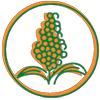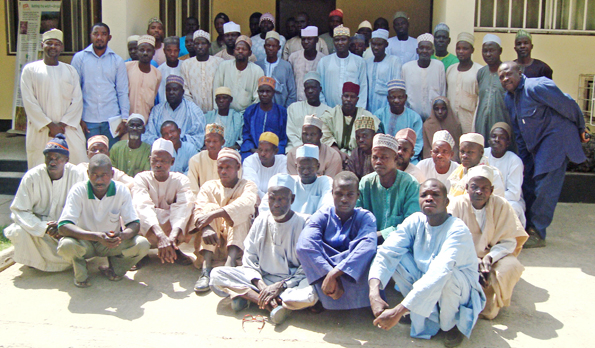Nigeria, with its predominantly agrarian society, celebrates agriculture as a fundamental pillar of its economy and livelihoods. According to the FAO, an estimated 70% of the population engages in agricultural production at a subsistence level.
Agriculture in Nigeria plays a vital role in providing employment and income opportunities, especially for smallholder farmers, who are the backbone of the sector. These farmers cultivate small plots of land, contributing to poverty reduction, food security, and rural development within their families and local communities. Despite its significance, Nigeria's agricultural sector faces challenges that, with strategic interventions, can transform into opportunities for growth.

One challenge is the current land tenure system, which, when improved, can reduce uncertainty and encourage investments in agricultural activities. Additionally, addressing low levels of irrigation farming will enhance resilience against climate change impacts like droughts and erratic rainfall patterns. Tackling land degradation, caused by unsustainable farming practices, will increase soil fertility and agricultural productivity.
Overcoming obstacles like inadequate access to modern agricultural technologies, high production costs, and limited distribution of inputs requires targeted efforts. Addressing financial access challenges will enable farmers to secure credit for investments and improve their operations.
Post-harvest losses in Nigeria can be minimized through improved storage facilities, transportation infrastructure, and better handling practices. Additionally, overcoming barriers to market access, such as inadequate infrastructure and limited information about market prices, will allow smallholder farmers to obtain fair prices and access larger markets.
Addressing these challenges is crucial to unlocking the full potential of Nigeria's agricultural sector and enhancing the well-being of smallholder farmers. Strategic interventions, such as improved land tenure systems, investment in climate-smart agriculture, promotion of modern agricultural technologies, and enhanced market linkages, can bolster agricultural productivity, food security, and rural development.
Efforts to improve agricultural practices and value chains should be complemented by targeted financial support and capacity-building initiatives for smallholder farmers. By empowering these farmers with knowledge, access to credit, and improved inputs, Nigeria can strengthen its agricultural sector and ensure the prosperity of farming communities. Additionally, investments in rural infrastructure, storage facilities, and transportation networks are critical to reducing post- harvest losses and facilitating better access to markets.
In 1988, ICRISAT took a significant step towards enhancing agricultural research in Nigeria by establishing a research station at Bagauda near Kano, focusing on improving sorghum varieties and hybrids. This marked the beginning of a fruitful collaboration between ICRISAT and the Agricultural Research Council in Nigeria (ARCN), as evidenced by a Memorandum of Understanding (MoU) signed in 2008 to engage in joint research programs in the country.
Over the years, ICRISAT and its partners in Nigeria have been actively engaged in expanding the genetic base of crops and elevating the production and productivity of millet, sorghum, and groundnut. This fruitful collaboration includes the exchange of germplasm, breeding materials, scientific information, and technologies, as well as concerted efforts in natural resource management. Beyond research, ICRISAT endeavors to promote mechanization through gender-friendly agricultural equipment, facilitate access to input and output markets, disseminate innovative technologies, scale up successful practices, and conduct capacity building for stakeholders.

In Nigeria, ICRISAT has gained recognition for its leadership in sorghum, millet, and groundnut value chain development, along with its commitment to climate-smart agricultural activities, such as the bio-reclamation of degraded lands and the utilization of crop residue in livestock management.
To bolster crop productivity and resilience, ICRISAT has actively supported the development and release of improved crop varieties. These include sorghum varieties resistant to leaf diseases and Striga, high-yielding and early-maturing sorghum varieties with excellent grain quality for industrial use in malting and brewing, groundnut varieties resistant to rosette disease and fungal foliar diseases, and early-maturing pearl millet varieties. Furthermore, integrated genetic and soil fertility management packages have been successfully implemented, elevating agricultural productivity in the region.
ICRISAT has also contributed significantly to the groundnut value chain by introducing dry season groundnut cultivation for seed and haulms. This practice has disrupted the cereal cycle in irrigated farms, providing quality fodder for livestock during the dry season.
One of ICRISAT's transformative initiatives, the Agricultural Transformation Support Project (ATASP-1), has played a crucial role in connecting over 45,000 sorghum farmers to industrial markets, paving the way for a silent green revolution in the Southern Guinea Savanna of Nigeria. Collaboration with women's groups and nutritionists has led to the promotion of composite flour made from sorghum/millet fortified with legumes, elevating the nutritional value of sorghum- and millet-based recipes in Nigeria.
Furthermore, the ICRISAT West Africa program has leveraged geospatial and digital tools to support informed decision-making by governments related to food security, agriculture, water resources, hydro-climatic disasters, weather, climate, land cover, land use change, and ecosystem services.
Looking to the future, ICRISAT's engagements in Nigeria will focus on developing climate-smart and nutritious varieties of sorghum, pearl millet, finger millet, and groundnut. A key goal is to establish robust seed systems and facilitate community-based seed production and commercialization.
Additionally, ICRISAT aims to promote climate-smart agricultural practices, enhance livestock production systems, emphasize water conservation, and utilize geospatial and big data sciences for land mapping and utilization. Through these efforts, ICRISAT continues to play a crucial role in contributing to the sustainable agricultural development and prosperity of Nigeria and its smallholder farmers.
or scan the QR 

Sorghum

Pearl Millet

Groundnut

ICRISAT - Nigeria Kano
Phone: +234 7034889836
Email: icrisat-nga@icrisat.org
Address: PMB 3491, Sabo Bakin Zuwo Road, Tarauni, Kano, Nigeria
15 Jan 2025